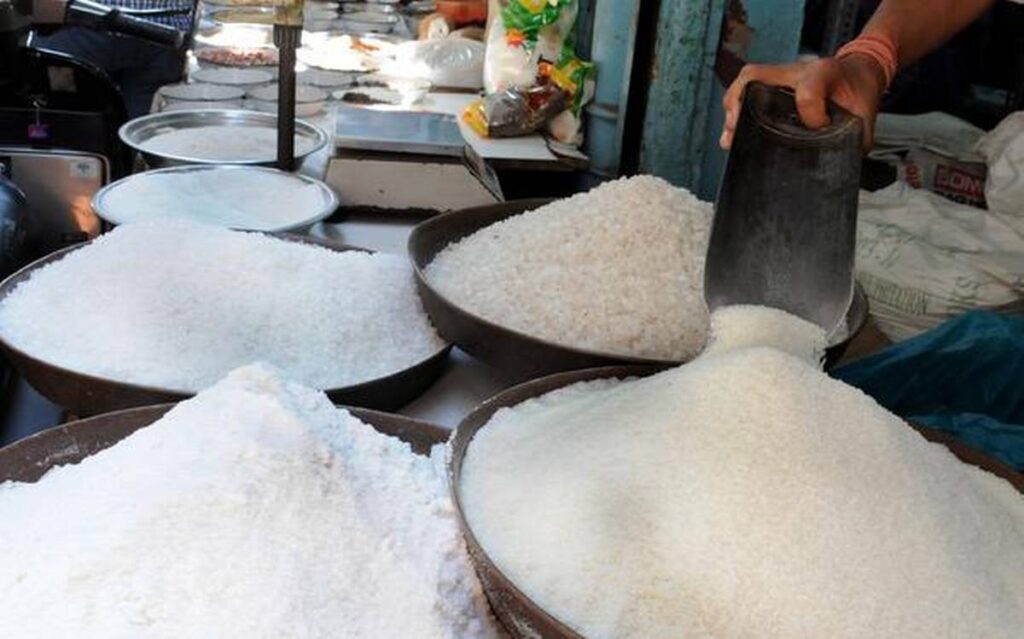Islamabad, Apr 9, 2025: The government on Tuesday announced a revised minimum sugar price for sales tax collection, which is expected to increase the per kilogram price by Rs10 to Rs15, generating an additional Rs90 billion in tax revenue to address the significant budget deficit.
The Federal Board of Revenue (FBR) issued a new statutory regulatory order (SRO) to adjust the per kilogram sugar price for applying the 18% sales tax.
The authorities replaced the previous price of Rs72.22 per kilogram with the updated rate.
The authorities will adjust the new price bi-weekly, based on the weekly retail sugar price reported by the Pakistan Bureau of Statistics (PBS).
The revised price, which will be applicable until April 15, is Rs126 per kilogram, marking a 75% increase from the previous price.
However, certain mills were already paying taxes based on prices ranging from Rs100 to Rs110 per kilogram.
The minimum price, including sales tax, will be determined by the “average national retail price of refined sugar, as last published on the PBS website under the Sensitive Price Indicator (SPI) before the 1st and 16th of each month, minus Rs16 for each fortnight,” according to the notification issued on Tuesday.
The notification further clarified that this price adjustment would be effective from April 1.
The latest published national average price of sugar, as reported by the PBS, was Rs168.80 per kilogram.
After subtracting Rs16 from this value, the ex-factory price, inclusive of sales tax, becomes Rs152.80.
This means the FBR will now impose a sales tax of Rs28 per kilogram on the updated price, compared to the previous range of Rs13 to Rs18 for prices between Rs72.22 and Rs100.
The new notification supersedes the August 2021 order, which set the sugar price for GST purposes at Rs72.22 per kilogram.
Despite the price increase, Special Assistant to the Prime Minister (SAPM) on Industries, Haroon Akhtar Khan, assured that the market price of sugar would remain unaffected.
He stated that the previous sales tax system, which varied based on the actual sale price in different areas and mills, would now be standardized with the consent of the sugar mills association.
“I don’t anticipate any impact on the current sugar price,” Khan said, who oversees the Ministry of Industries.
An FBR representative shared with The Express Tribune that the tax authority collected Rs118 billion in sales tax from sugar in the previous year, with prices between Rs72.22 and Rs100 per kilogram.
The government now expects an additional Rs90 billion in tax revenue, bringing the total sales tax collection from sugar to Rs208 billion.
This change comes after the FBR discovered that most mills were still paying taxes based on the outdated 2021 price.
The FBR’s failure to annually revise the base price contributed to the continued lower tax payments by the mills.
Read More: Maersk to Modernize Pakistan Seaports, Logistics Sector
Sugar mill owners, however, argued that the FBR would only receive an extra Rs15 to Rs20 billion in tax revenue, as many mills were already paying taxes based on Rs100 per kilogram.
In addition to the sales tax, the government also levies a federal excise duty of Rs15 per kilogram on sugar supplied by mills to manufacturers and commercial users.
This excise duty generated Rs9 billion in the first nine months of the current fiscal year.
FBR spokesperson Dr. Najeeb Memon confirmed that the new sales tax system for the sugar sector has been fully implemented.
Despite facing challenges in meeting revenue targets, with a Rs714 billion shortfall for the first nine months of the fiscal year, the FBR expects the revised sugar tax to generate an additional Rs23 billion in the remaining months.
Prime Minister Shehbaz Sharif mentioned last month that the International Monetary Fund (IMF) had agreed to reduce Pakistan’s annual tax target from Rs12.97 trillion to Rs12.33 trillion, a reduction of Rs640 billion. However, FBR’s performance suggests that the country may still struggle to meet this revised target without further tax measures.
Earlier, the government also set the retail price of sugar at Rs164 per kilogram, marking a 13% increase compared to the price before the export of 795,000 metric tons of sugar.
This adjustment benefited sugar mills, enabling them to earn higher profits from both domestic and international markets.
Each rupee increase in the sugar price results in an additional Rs2.8 billion in revenue for sugar mills.
The U.S. Trade Representative, in its report on international trade barriers, raised concerns about the arbitrary issuance of SROs, which continue to offer sector-specific duty exemptions and protections.
Despite prior commitments under IMF programs to limit the use of SROs, they remain in effect, with no timeline provided for their elimination.
